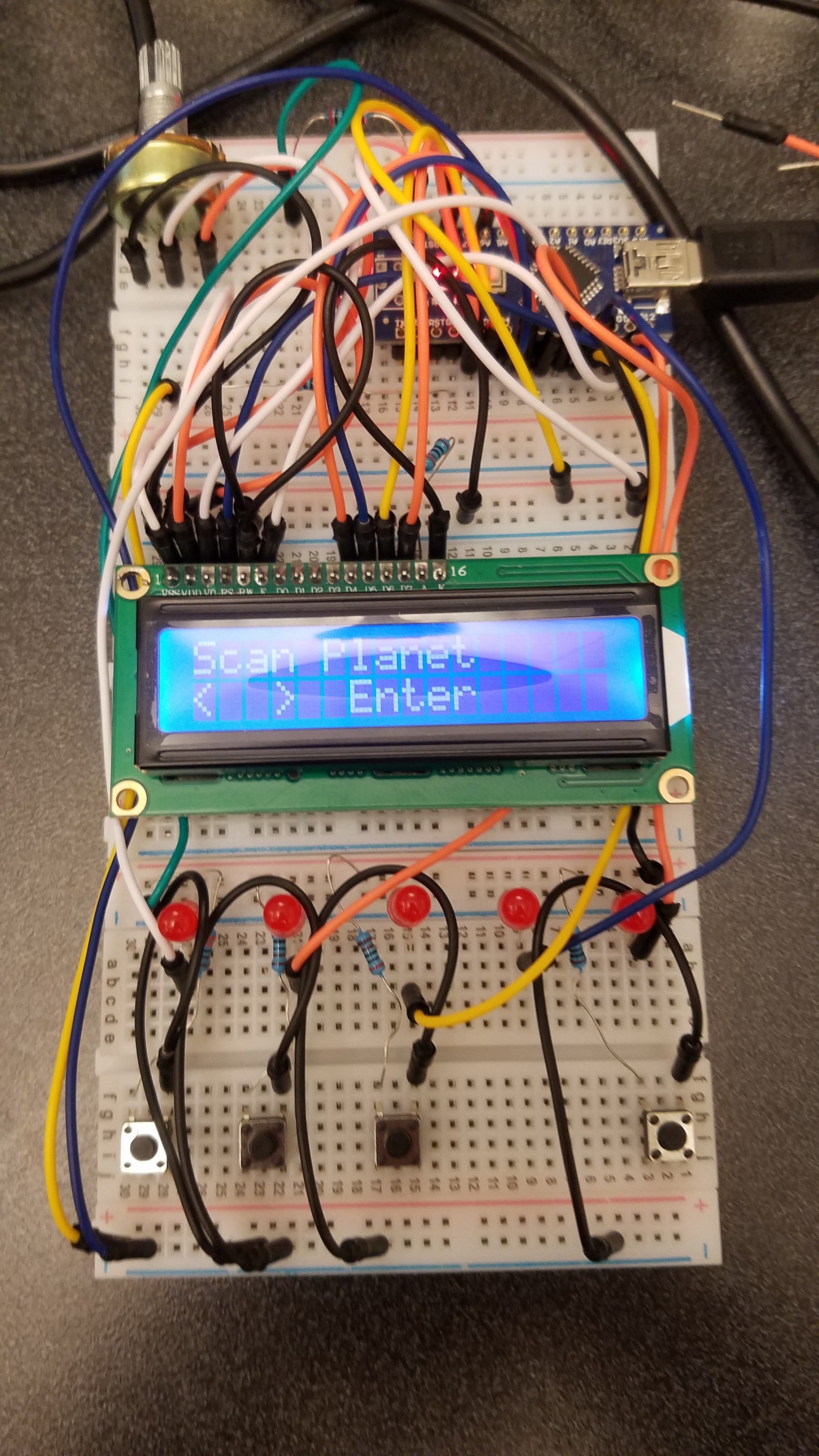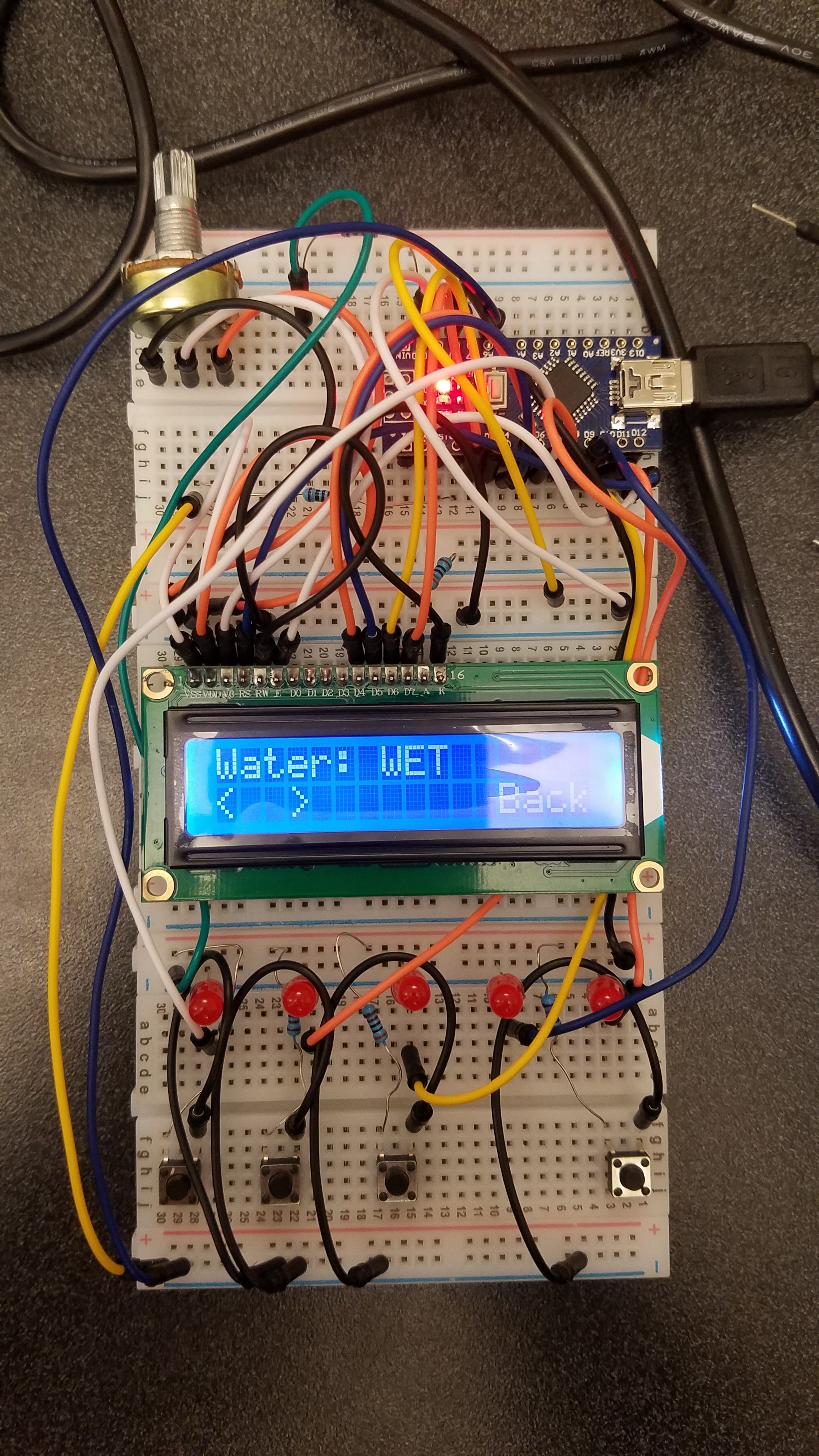A sci-fi Arduino game.
We were inspired by the game Seedship and wanted to replicate something similar using an Arduino. We had been planning this project for a few days and were not even sure if we would work on Earthseed until the first day of HackPrinceton.
Try the original game: http://philome.la/johnayliff/seedship/play
Earthseed simulates the mobile app Seedship through an Arduino. The goal of the game is to pilot a spaceship filled with 1000 colonists into a habitable alien planet so that humanity can be saved. Since this hack focuses on the hardware, this creates a much more immersive experience, with flashing lights and selection menus that feel like you are actually controlling a spaceship.
We designed the game with a breadboard, Arduino, LCD screen, LED lights, buttons, and wires. On the software side we developed and tested code in C, and then sent it over GitHub. One of our teammates transformed the code into .ino files so that it could actually be tested within the Arduino. This was our workflow for much of the first day.
We found that the story we created at the start was too expansive for us to implement. So, we had to cut down on all the features that we didn't need and only focus on what was necessary. For example, we originally wanted to include a brief introduction to the plot before the game started, but we decided not to run with it since it would not be user-friendly to read multiple sentences on a 2 x 16 LCD display. Our final design would include 5 LED lights, 4 buttons, and random events within the game that flickered the lights to signify what was going on. We also wanted to 3D print a case for the hardware to protect it but we could not find the correct material to 3D print what we wanted. During our project presentation, our buttons would come off of the breadboard when we pressed them. We found this to be very annoying.
We are very proud of what our team has accomplished with this project in 48 hours. Considering that all of our team members were abandoned by their previous teammates, we ended up doing better than expected and even got close to winning the "Best Hardware Hack" award. Despite not being able to print out the case for the board, we think this project was a job well done. We honestly haven't had this much fun working at a hackathon before!
We learned that breadboards/unsoldered circuits can be very unreliable, but beautiful things are just around the corner when you keep your head up. Also, this hardware hack was just awesome.
Earthseed will have a case around it soon. It would also be cool to manipulate the lights when crazy random events occur. For example, if a space ghost came to interact with the user, we could introduce this event by flickering all of the LED lights in a spooky fashion before the LCD screen starts displaying about the event.

